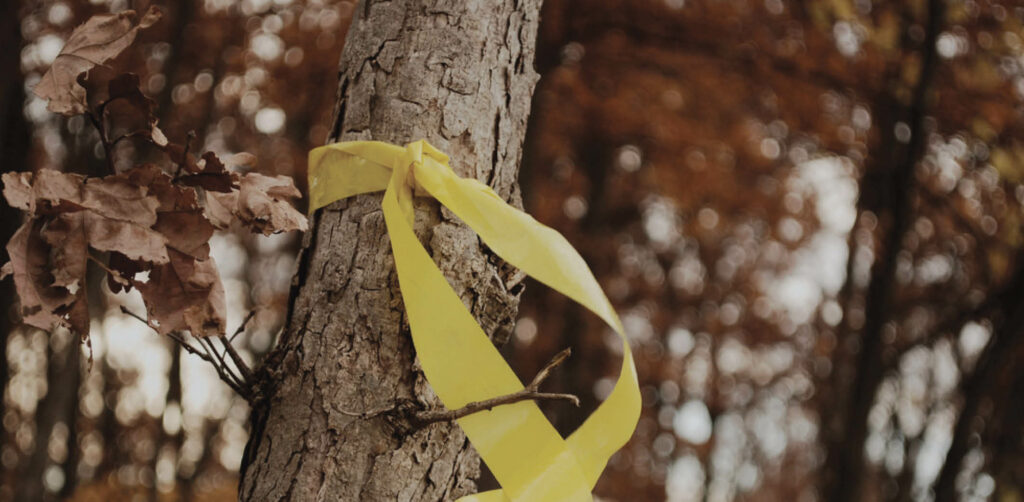the yellow ribbon adorning the suits and ties of the newsroom’s talking heads are driving us mad
Never has the State of Israel undergone such an atrocious event as the 7th of October, and never has it even come close to a situation in which 250 Israelis — ranging from few-month-old babies to elderly people, some well into their 80’s — are kidnapped from their homes and taken captive. Under any ‘normal’ circumstances, there would be no need for a campaign demanding the government prioritize the safe return of its hostages, especially after failing to uphold the rudimentary obligation between the State and its citizens — to ensure their security, especially of those living in border regions.
But reality proved us naive. What should have been self-evident is not: the release of the hostages was not, and is not, the highest priority of the Israeli government. How do we know?
Because if the hostages were first on the agenda, the government would have immediately put a deal on the table, well before deciding to go for a ground invasion. Such a deal would entail, for example, exchanging the hostages for a high number of Palestinian prisoners and a ceasefire. Heck, the government didn’t even need to come up with any ideas of their own: the deal was already on the table in the first few days of the war, and it included every single one of the Israeli captives. In the bare minimum they could have pursued an additional swap of women and children. We now know that the state of Israel refused to rescue ten living hostages that could have already been in the embrace of their families’ — claiming that Hamas had not stood by the agreement and “provided” seven women and three men, instead of ten women.
Once again the government showed that they prioritize the war over the return of the hostages.
So, how do they solve this inconsistency? Well, we are being told by news anchors and spokespeople that military pressure will help the hostages. But in reality, Hamas has tightened its grip and hostages have been killed due to military pressure. The takeaway is clear: The State of Israel and it alone must prioritize its hostages. Hamas obviously won’t do it for us, and neither can the US.
At the same time, polls (mostly right-wing polls) are showing that a majority of the coalition’s supporters prefer war over the return of the hostages, and that’s another reason why the government isn’t concerned about their speedy return: securing the coalition is top priority for them, and so is preventing a re-election.
In such a situation, the hostages’ families have only one option: to exert pressure on the public and the ruling government to do everything in their power to bring them home before it's too late. That’s what Tami Arad, spouse of the late captive Ron Arad has been saying, and that’s how hostages have been released throughout Israel's history. So what's our problem? Why are we always so negative?
Indeed, there isn’t a single person in the country who isn’t talking about the hostages; there is not one relative of a hostage that isn’t giving interviews; every other person is wearing the military tag with the inscription “our hearts our held captive in Gaza” and even more people are wearing the yellow sash as a symbol of prayer for their return.
But that’s exactly our problem. The return of the hostages has become a mere wish, a prayer. Every official that sends his “thoughts and prayers” for their return; every military correspondent that wears the yellow ribbon on their big black vest while exclaiming that military pressure will get them out of their alive (even though we already know that some have died due to Israeli bombings or inhaling poisonous gasses that were pumped into the underground tunnels) — they’re all part of the problem.
And the hostages’ families? They are traversing the globe, sleep deprived, in a desperate bid for international intervention; they’re raising money in the millions, calling on world nations to expedite their return. But the truth is, that the single governing body that has the power to release the hostages is no other than the State of Israel.
The dilemma is not an easy one, but only recently has it been expressed more explicitly. Releasing the hostages requires a long term or even permanent ceasefire. If the hostages’ relatives, or those campaigning for their behalf, wish to expedite their time in captivity — they need to be upfront about the stakes. That’s what everything in “we must do everything for the hostages” means.
The yellow sash, the thoughts and the prayers will not bring them home. They will only stall time and risk the chance we have to bring them home. And we want them back home, because that is the most fundamental, moral imperative of the state and military that, on the 7th of October, failed their citizens profoundly.
It’s as simple as it is infuriating.

